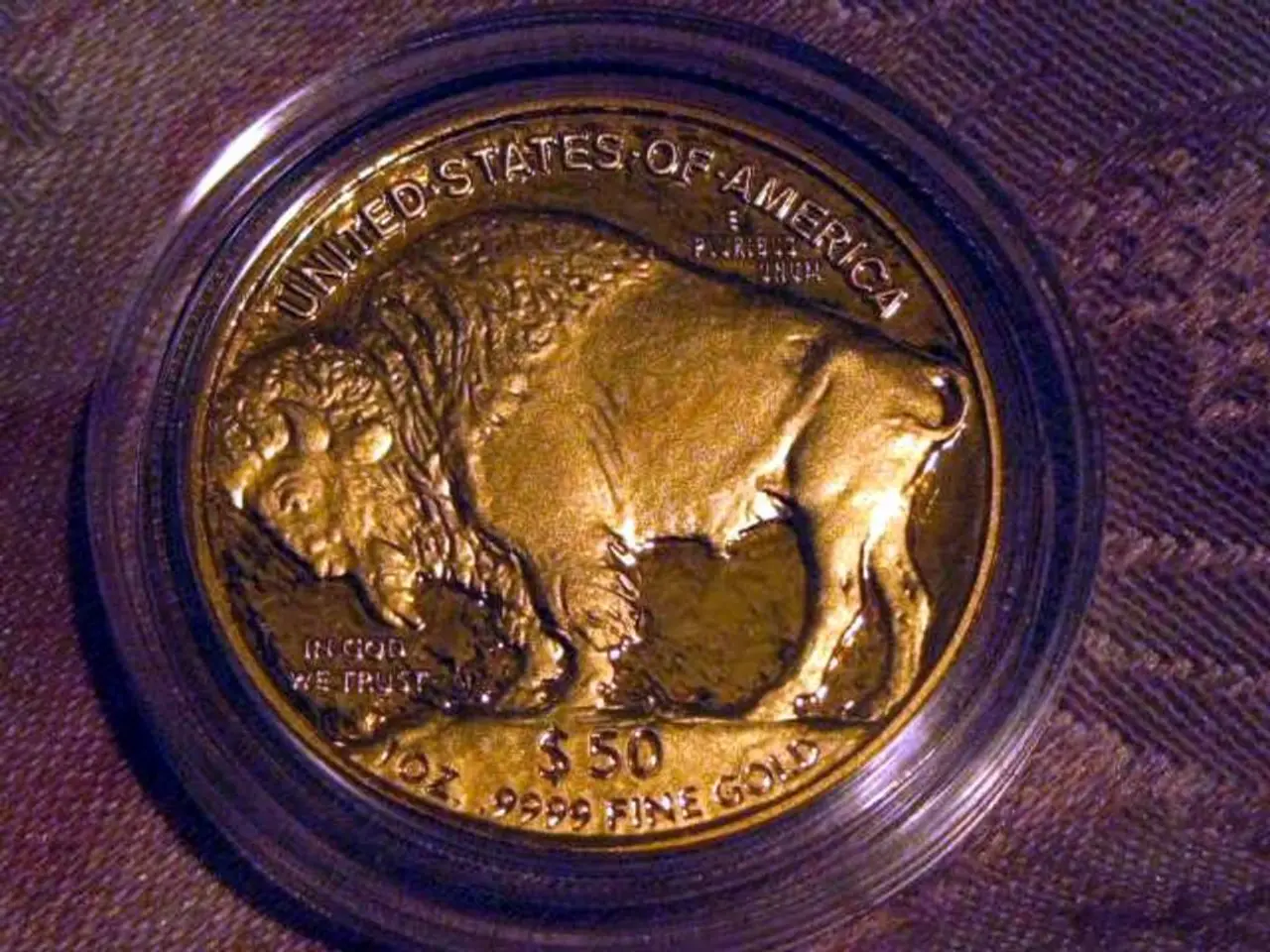Check it out: The Int'l Fisher Effect Explained (Uncensored, Unapologetic Version)
Currency Predictions through the International Fisher Effect (Equation, Controversies)
Ready to dive deep into a money-related topic? Let's talk about the International Fisher Effect, a concept that's all about the relationships between interest rates, inflation, and exchange rates. This theory, named after American economist Irving Fisher, can give you a solid understanding of how these factors influence currency movements and trade patterns.
So, what's the International Fisher Effect? It's a theory that states that changes in exchange rates are correlated with the difference in nominal interest rates between two countries. When a country's domestic nominal interest rate is higher than its trading partner's, we expect the domestic currency to depreciate against the partner country's currency.
A Lesson in Currency Moves
Fisher believed that interest rates are a strong indicator of a country's currency performance. Looking at the relationship between the difference in nominal interest rates and changes in exchange rates, he made some assumptions:
- Capital flows freely: Money goes where it's welcomed and expected returns are the best.
- Equal real interest rates globally: In an ideal world, interest rates are the same across nations after adjusting for inflation.
- Interest rate differentials equal expected inflation: The difference in nominal interest rates between countries reflects the anticipated differences in inflation rates.
- Integrated capital markets: The world's capital markets operate seamlessly, with no nation-specific idiosyncrasies.
- No currency controls: There are no rules or restrictions on moving money around internationally.
The International Fisher Effect formula looks like this: the percentage change in the exchange rate between two countries is roughly equal to the difference in their nominal interest rates.
Let's take a look at two currencies, the US dollar (USD) and the rupiah (IDR). Currently, the exchange rate is 14,000, with a US interest rate of 2.0% and Indonesia's interest rate at 6.0%. Based on the formula, since Indonesia's interest rate is higher, the rupiah will depreciate against the USD. The depreciation is approximately 4%, which equals (14,549/14,000) -1.
Putting the Theory to Work
The International Fisher Effect sheds light on how higher domestic interest rates can lead to currency depreciation. This situation stems from investors demanding higher returns to compensate for the anticipated decrease in a currency's purchasing power. Higher inflation, in turn, makes domestic products more expensive than imports, shifting trade patterns. The anticipated inflation and trade flow changes can weaken the domestic currency's purchasing power, causing it to depreciate.
On the other hand, lower domestic interest rates lead to currency appreciation, as lower expected inflation makes domestic products cheaper compared to imports. This situation creates an environment for an appreciation of the domestic currency.
The Catch: Short-Term Predictions
The International Fisher Effect is a useful tool for understanding the connections between interest rates, inflation, and exchange rates. However, it's important to remember that it has its limitations, particularly when it comes to short-term predictions. Real-world factors like trade quality, government intervention, and imperfect capital mobility can influence exchange rates in ways that the IFE doesn't take into account.
This theory provides a solid foundation for understanding how currencies and economies work while keeping the real-world complexities in mind. To delve deeper, feel free to explore topics like foreign direct investment, capital flow control, capital outflow, foreign portfolio investment, and foreign investment. These topics will give you a broader understanding of the forces shaping the global financial landscape.
- The International Fisher Effect suggests that when a country's domestic nominal interest rate is higher than its trading partner's, the domestic currency will likely depreciate against the partner country's currency, as investors demand higher returns due to the expected decrease in the currency's purchasing power.
- Understanding the International Fisher Effect can help you comprehend how higher domestic interest rates can lead to currency depreciation and lower domestic interest rates can cause currency appreciation, but it's important to remember that short-term predictions with this theory might be limited due to various real-world factors like trade quality, government intervention, and imperfect capital mobility.








